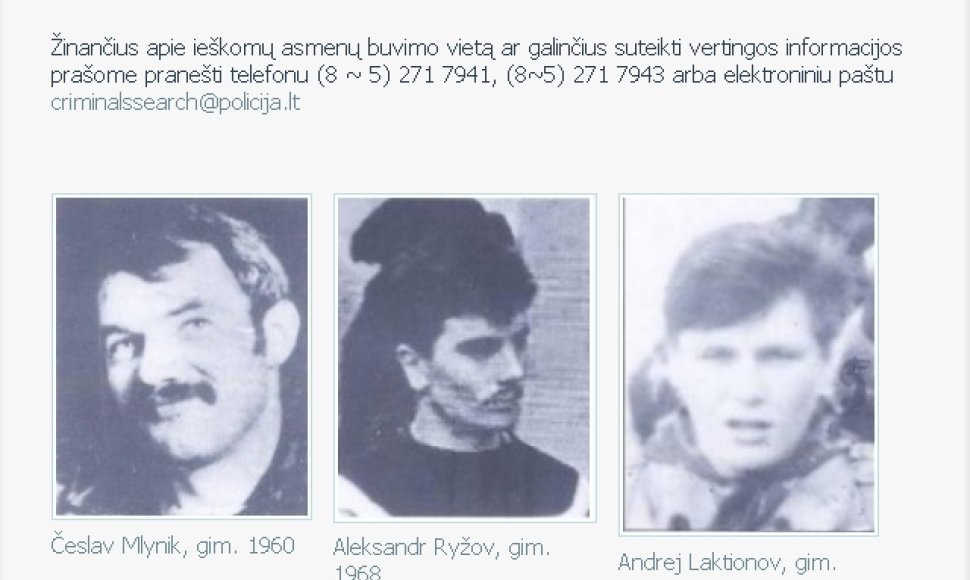Prosecutor treat this crime as a crime against humanity, and have named Russian citizens Cheslav Mlynik, Andrey Laktyonov, and Alexander Ryzhov suspects in the case.
According to the Prosecutor General's Office, amendments to the Lithuanian Criminal Code and Code of Penal Process, adopted in December 2010, facilitating prosecution for crimes against humanity and war crimes and allowing ending a pre-trial investigation without a suspect involved in the process.
On July 28, 2011, Vilnius City District Court satisfied a request by a prosecutor from the Prosecutor General's Office's Organized Crimes and Corruption Investigation Department to name Mlynik, Laktyonov, and Ryzhov suspects in the case based on Article 100 of the Criminal Code. i. e., suspects of crimes punished by imprisonment for a term of five up to twenty years or by life imprisonment.
In the summer of 2011, Lithuania's Prosecutor General's Office turned to the Prosecutor General's Office of the Russian Federation with a legal assistance request to inform the suspects about the ruling of Vilnius City District Court, explain their rights and invite them to testify in the case.
The Prosecutor General's Office of the Russian Federation said in a response in the fall of 2012 that the suspects were Russian citizens and could not be extradited to foreign countries based on Russian laws.
Seven police and customs officers who were guarding the border of Lithuania, then unrecognized by the Soviet Union, were killed at Medininkai border checkpoint in the early hours of July 31, 1991.
Only one individual has been convicted for the crime. Konstantin Mikhailov, a Latvian citizen, formerly known as Nikulin, and a former OMON officer, was sentenced to life imprisonment in the spring of 2011 for his involvement in the massacre. Lithuanian prosecutors later appealed as they want him to be sentenced for crimes against humanity. Mihkailov also lodged an appeal as he strongly denies his guilt.












